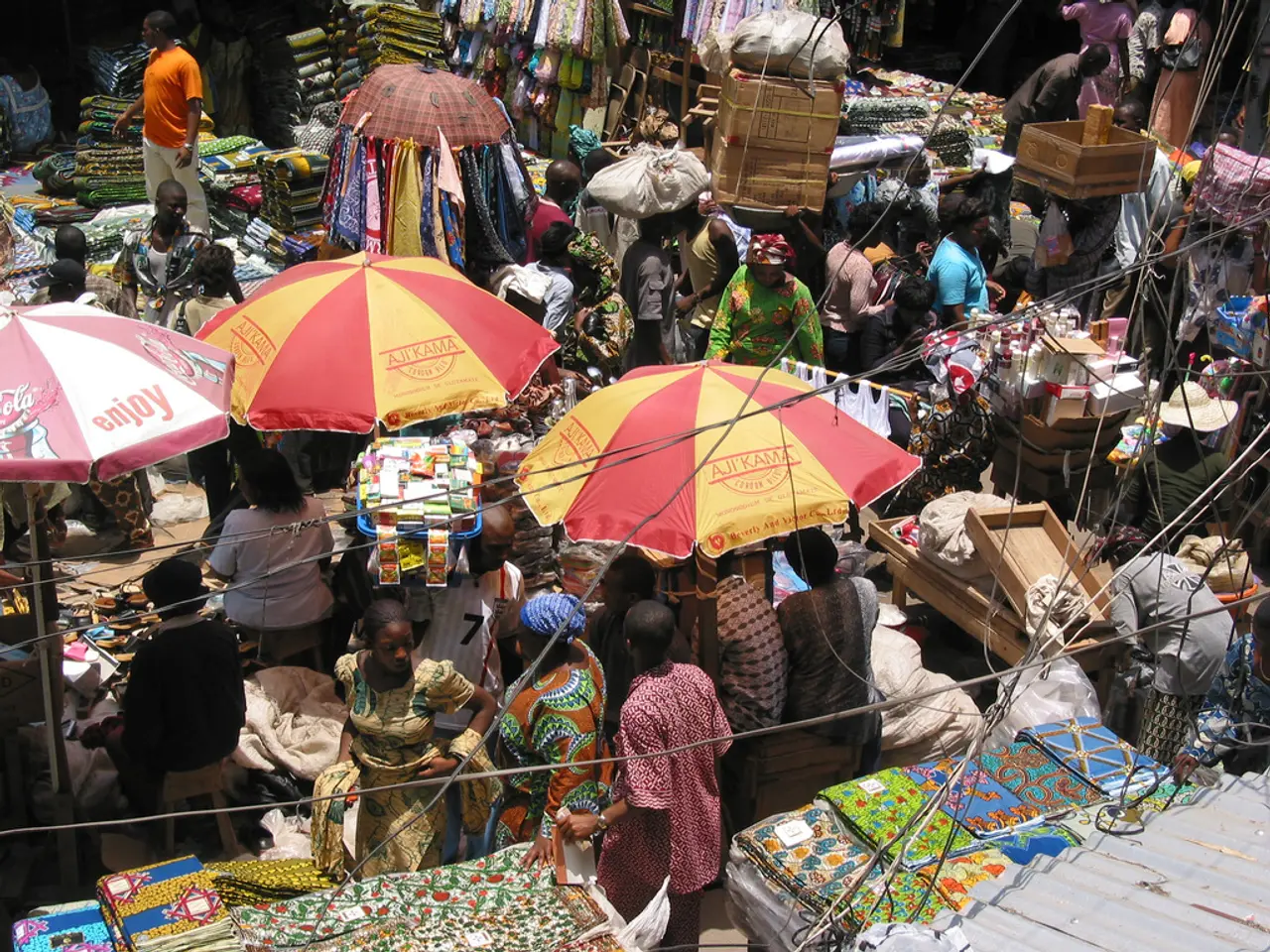Banking Giant implicated in Singapore's Illegal Gambling Money Transactions
In a significant development, the Monetary Authority of Singapore (MAS) has concluded its investigation into a money laundering scandal involving Credit Suisse's Singapore branch. The investigation, which uncovered breaches of anti-money laundering (AML) controls worth approximately US$4.5 million, has now reached a regulatory conclusion [1][2][3][4].
The scandal, which revolves around the misappropriation of billions of dollars from a state investment fund, has led to extensive international investigations and legal actions. MAS has imposed a S$5.8 million fine on Credit Suisse's Singapore branch, marking one of the largest penalties for such breaches in Singapore's history [1][2].
The investigation has also implicated other financial institutions, including UBS, UOB, Julius Bär, Citibank, and others. These institutions have collectively been fined S$27.45 million (US$21.55 million) for failures such as inadequate risk assessments on clients and insufficient follow-ups on suspicious transactions [1][2][3].
The case underscores MAS's rigorous enforcement of AML regulations, signaling increased scrutiny for all financial institutions operating in Singapore. The penalties serve as a reminder that regulatory bodies are prepared to impose substantial fines and possibly take further action against institutions failing AML compliance [1][3].
The multi-institutional nature of the case demonstrates risks of collective AML compliance failures, prompting financial institutions to improve controls, enhance due diligence, and foster stronger compliance cultures. This is especially critical given Singapore’s role as a global financial hub [3][4].
The investigation could unveil illicit financial activities that have permeated Singapore's banking sector. Ten individuals, all of Chinese descent but possessing passports from various nations, have been detained for their involvement in the money laundering operation. Concerns are elevated due to the fact that some of those implicated held multiple passports, raising suspicions of their potential use of forged documents to elude border controls [1].
The investigation will focus on potential links between the banks and the suspects, as well as scrutinizing the overall efficiency of their client screening processes. The financial landscape of Singapore is currently under intense scrutiny due to the money laundering scandal [1].
It's important to note that this is not the first time Credit Suisse has been under investigation for money laundering activities. The 1Malaysia Development Berhad (1MDB) scandal, in which Credit Suisse was involved, is the largest corruption case to shake Malaysia [1].
The current situation highlights the need for heightened vigilance across Singapore’s financial sector. The MAS’s decisive action likely sets a precedent and warns other firms to rigorously review their AML policies to avoid similar penalties and regulatory fallout [1][2].
The investigation's conclusions by MAS, concerning the money laundering scandal at Credit Suisse's Singapore branch, have highlighted the need for heightened vigilance in the casino-and-gambling, finance, and banking-and-insurance industries. With significant fines imposed on Credit Suisse and other institutions like UBS, UOB, Julius Bär, Citibank, and more, for AML control breaches, the general-news outlets are discussing potential links between these institutions and involved individuals. The police have detained ten individuals of various nationalities, raising suspicions about their use of forged documents and potential ties to lotteries, a sector often linked to illegal activities. The ongoing scrutiny emphasizes the importance for all Singapore-based businesses to strengthen their AML compliance, particularly given the city-state's role as a global financial hub, to avoid similar penalties. Additionally, it serves as a reminder of past occurrences, such as Credit Suisse's involvement in the 1Malaysia Development Berhad (1MDB) scandal, which was the largest corruption case to shake Malaysia. Ultimately, the casino-games sector might also find itself under increased scrutiny stemming from these investigations.







